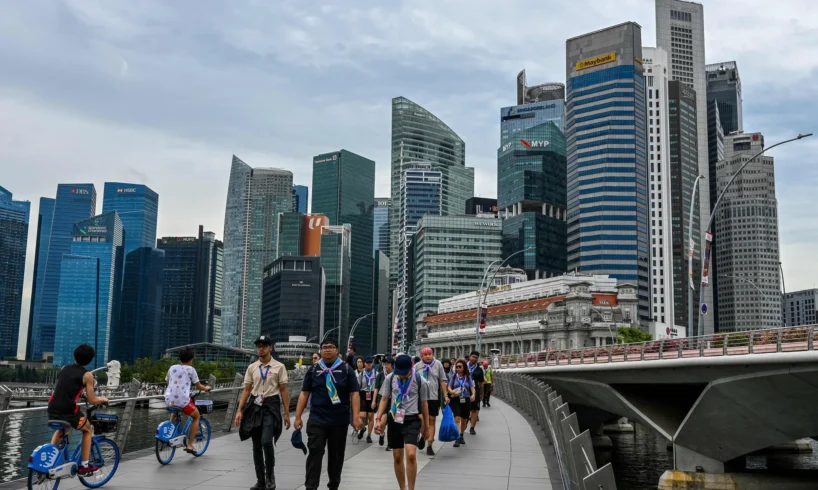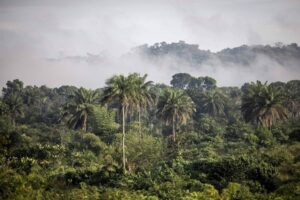
This is the city-state’s first time atop the annual ranking, after coming in second for the past three editions
[SINGAPORE] The Republic has been ranked the world’s most talent-competitive country among 135 economies in the latest Global Talent Competitiveness Index (GTCI) report by business school Insead and research organisation Portulans Institute.
Switzerland fell to second place, while Denmark moved up a spot to take third place. Finland, Sweden, the Netherlands, Norway, Luxembourg, the US and Australia rounded off the top 10.
This is the first time Singapore has topped the annual ranking, which was launched by Insead in 2013 as a benchmark for policy thinking on labour markets, work organisation and talent flows.
The Republic’s first-place showing was largely due to a “marked improvement” in its ability to retain talent, said Felipe Monteiro, academic director of the GTCI and senior affiliate professor of strategy at Insead.
This is owing to improvements in the areas of personal rights, physician density and continued global leadership in personal safety, he told The Business Times on Tuesday (Nov 26) ahead of the report’s launch.
The Republic was ranked second in the last three GTCI reports – the last was released in 2023 – behind Switzerland, which had held first place since 2013.
Monteiro said there was no report in 2024 as the index was being revamped after 10 editions.
That revamp resulted in Insead partnering with the Portulans Institute – a non-profit research outfit based in Washington, DC – for the 2025 edition.
The report’s academic and methodological rigour was also strengthened, he noted, and includes new variables such as artificial intelligence (AI) adoption, soft skills and employee well-being.
SEE ALSO
Under the theme Resilience in the Age of Disruption, this year’s GTCI examined how nations and economies are building talent systems capable of weathering disruptions.
The ranking of 135 economies is based on 77 indicators across six pillars: enable, attract, grow, retain, vocational and technical skills, and generalist adaptive skills.
Singapore’s strengths
In this year’s report, Singapore stood out “for the constant evolution of its educational system, and its forward-looking approach to nurturing an adaptive and innovation-driven workforce”.
The Republic was ranked first in generalist adaptive skills for having a workforce “armed with the soft skills, digital literacy and innovation-oriented thinking that today’s fast-shifting landscape demands”.
Singapore also climbed seven spots to 31st place when it came to its ability to retain talent.
Paul Evans, Insead’s emeritus professor of organisational behaviour and the report’s co-editor, said economies that cultivate adaptable, cross-functional and AI-literate workforces “tend to be better positioned to convert disruption into opportunity and sustain long-term competitiveness”.
“This year’s results underscore that talent competitiveness is not solely a function of income level, but of strategic policy orientation, institutional quality and effective mobilisation of human capital resources,” he added.
One key finding of this year’s report is that economies able to translate investments “into meaningful outcomes” will set themselves apart in the talent race.
It noted that Singapore, South Korea and Israel stood out for their ability to obtain better talent outcomes with fewer resources.
The same goes for lower-middle-income countries such as Tajikistan, Kenya, Uzbekistan, Sri Lanka, Myanmar, Pakistan, Bangladesh and Rwanda, the report highlighted.
Said Evans: “Economies that align education, labour and innovation systems towards adaptive talent development can achieve high performance even with modest income levels.”
2025 scorecard across regions
While high-income European economies continued to anchor the top 10 in the 2025 edition, the report noted the decline of several major economies, including the US, which dropped from third place to ninth.
Still, it flagged that the US’ performance – alongside Canada’s 14th place – shows North America’s strength in cultivating and deploying skilled talent across sectors.
Europe accounted for 18 of the top 25 positions, including the United Kingdom in 12th, Germany in 17th and France in 19th place.
For Asia and Oceania, Australia and New Zealand outscored Singapore in retaining talent, ranking 10th and 18th, respectively. However, they fell behind the Republic in general adaptive skills.
Meanwhile, China fell from 40th to 53rd place in this year’s ranking.
This “reflected a less favourable business climate and labour market”, the report said, though it pointed out that insufficient data could have contributed to the decline.
In North Africa and Western Asia, Israel led the pack, ranking 23rd. The United Arab Emirates – which ranked 25th – topped the region in attracting talent and developing skills, though it lagged in the area of high-level skills.
In Latin America and the Caribbean, Chile came out tops in 39th place, followed by 42nd-place Uruguay and 44th-place Costa Rica.
Neither Brazil nor Mexico, the region’s two largest economies, were ranked among the top 50.
Decoding Asia newsletter: your guide to navigating Asia in a new global order. Sign up here to get Decoding Asia newsletter. Delivered to your inbox. Free.





